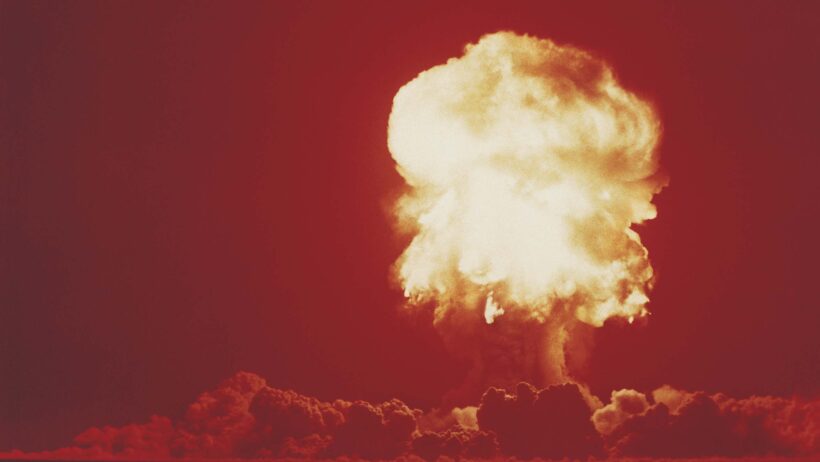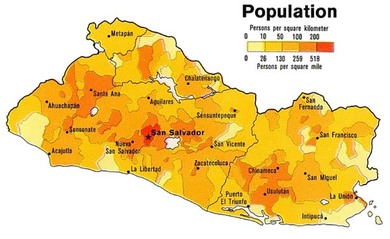As the world grapples with the multifaceted challenges posed by climate change, a question emerges that often eludes mainstream environmental discourse: Do bombs affect climate change? This inquiry is not merely an academic exercise but an urgent exploration of the environmental aftershocks precipitated by military actions. Indeed, the intersection of warfare and ecological degradation presents a disquieting panorama that warrants serious examination.
To understand the nexus between bombs and climate change, one must first consider the immediate physical impacts of bomb explosions. The detonation of explosive ordnance results in the release of vast amounts of energy, which does more than cause destruction; it also releases greenhouse gases and particulates into the atmosphere. This phenomenon is not limited to the traditional theater of war. It extends to the most advanced weaponry and munitions deployed in various conflicts worldwide.
For instance, during military conflicts, the use of explosives can lead to the combustion of fossil fuels and the destruction of infrastructure. This in turn generates a significant amount of carbon dioxide, a potent greenhouse gas. Moreover, the tumultuous activity in conflict zones often creates conditions conducive to local vegetation loss. Forests, grasslands, and other carbon sinks are decimated by aerial bombardments, eradicated not merely for tactical superiority but in the name of territorial control. The implications are direct: as flora capable of carbon sequestration disappears, the atmospheric carbon burden worsens.
The environmental ramifications extend beyond immediate geographical boundaries. The detonation of nuclear bombs, for example, has longer-lasting effects on the climate system. The concept of “nuclear winter” posits that extensive use of nuclear weapons could send soot and debris high into the atmosphere upon detonation, potentially blocking sunlight and inducing a significant and prolonged drop in global temperatures. Such a scenario is not simply hypothetical; it underscores the catastrophic interplay between nuclear warfare and climatic instability. Societies living on the precipice of nuclear capability must grapple with the dual threat of annihilation and ecological calamity.
Furthermore, one cannot ignore the extensive militarization of natural resources in conflict zones. Numerous wars have been waged over access to oil, water, and arable land. The extraction, refining, and transportation of these commodities are significant contributors to greenhouse gas emissions. As military operations damage ecosystems—whether through oil spills or the devastation of freshwater resources—these activities exacerbate climate change while instigating social upheaval and displacement.
Yet, the military’s contribution to climate change does not occur in isolation. It is compounded by systemic global issues like industrialization and consumerism. Nations often prioritize military spending over sustainable environmental policies or invest in infrastructure that directly harms ecological well-being. As we witness increasing conflict over dwindling resources in a changing climate, it becomes evident that militarism and environmental degradation are intertwined in a pernicious cycle.
Moreover, the ramifications of military conflicts on climate change are not confined to the developed world. They reverberate through the Global South, where communities are often the most vulnerable to environmental fluctuations. In nations plagued by warfare, where governance is frail or non-existent, climate change becomes an additional burden. Vulnerable populations—often marginalized and impoverished—find themselves beset not only by military aggression but also by altered weather patterns, reduced agricultural yields, and increased natural disasters. The cycle becomes vicious and self-perpetuating.
Furthermore, the militarization of international relations has implications for environmental diplomacy. Military posturing among nations often hinders collective global efforts to combat climate change. The resources spent on military endeavors could be redirected towards sustainable development and renewable energy solutions. This shift is not merely financially prudent; it represents a moral imperative. The distinction between national security and environmental security blurs when military operations exacerbate climate change, imposing existential threats on nations worldwide.
In order to mitigate the climate impacts of military actions, a fundamental reevaluation of defense policies is required. Investments must shift from military infrastructure toward green technology and sustainable practices, thereby mitigating environmental degradation while enhancing societal resilience against climate-related shocks. Moreover, an integrated approach that includes peacebuilding, conflict resolution, and environmental justice is imperative to address this interlinked crisis.
Combating climate change necessitates a collective awakening to the consequences of military aggression. It requires visionary leadership that acknowledges the intricate web connecting environmental health, social equity, and global peace. As the global community stands at a pivotal juncture, it is essential to forge new paradigms that re-envision security not as a mere military proposition, but as an overarching commitment to an ecologically sound and peaceful world.
In summary, the question remains: Do bombs affect climate change? The resounding answer, supported by compelling evidence, is yes. The relationship between military activities and environmental degradation is complex, multifaceted, and consequential. Recognizing this interdependence offers an opportunity for profound change. Societies must transcend traditional paradigms, acknowledging that true security is intertwined with ecological integrity. The time for this reckoning is now—our future depends on it.







